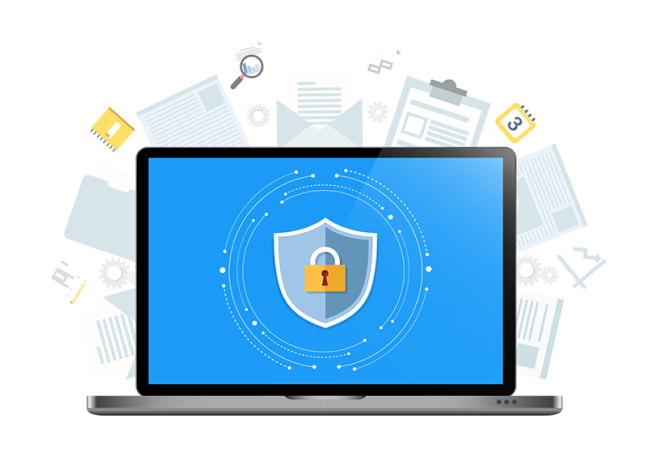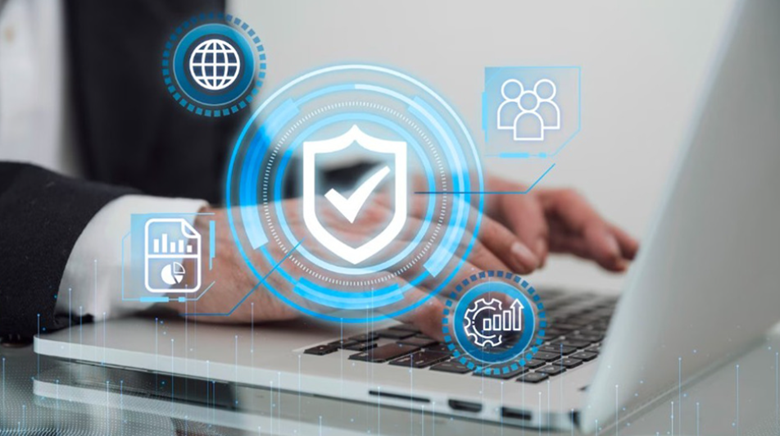The Importance of Cyber Hygiene: Best Practices for Everyone
In today’s digital age, our personal and professional lives are intertwined with technology. As
we increasingly rely on computers, smartphones, and the internet, the need for robust cybersecurity practices
becomes essential. One fundamental concept in cybersecurity is cyber hygiene—the daily steps we take to protect
our digital devices, data, and personal information from threats.
Much like personal hygiene helps maintain physical health, cyber hygiene helps safeguard your
online presence from cyberattacks.
What Is Cyber Hygiene?
Cyber hygiene refers to the routine practices that individuals and organizations follow to
maintain the security of their digital systems and devices. These practices reduce the risk of viruses, malware,
and other security threats by keeping systems clean and up to date. With more people working remotely and relying
on digital tools for communication, the importance of maintaining good cyber hygiene cannot be overstated.
Why Cyber Hygiene Matters
- Data Breaches: Exposing personal,
financial, or business information to hackers.
- Financial Loss: Cyberattacks can lead to
costly recovery processes and financial theft.
- Identity Theft: Poor cyber hygiene can make
it easier for criminals to steal sensitive personal information.
- Compromised Devices: Infected computers or
smartphones can spread malware to others in your network.
By following strong cyber hygiene practices, you can protect yourself from becoming an easy
target for cybercriminals.
Best Practices for Cyber Hygiene
- Use Strong, Unique Passwords: Avoid using
the same password across multiple services, as one breach could potentially compromise all your accounts.
- Use a Password Manager: A password
manager can generate and store complex passwords, ensuring each account has a unique and secure password.
- Enable Multi-Factor Authentication (MFA):
MFA adds an extra layer of protection by requiring a second form of verification, such as a text message or
fingerprint.
- Keep Software and Devices Updated: Regular
software updates often include patches for security vulnerabilities that hackers may try to exploit.
- Enable Automatic Updates: Turn on
automatic updates so your software and devices stay current without manual intervention.
- Update Firmware: Don’t forget to update
your router and IoT devices, as these are often overlooked yet can be easily targeted by hackers.
- Use Antivirus Software: Antivirus software
scans your system for malware, ransomware, and other malicious software, providing a critical line of defense.
- Schedule Regular Scans: Ensure that your
antivirus software runs regular scans to detect and eliminate potential threats.
- Enable Real-Time Protection: Real-time
protection provides immediate defense against infections as they arise.
- Be Wary of Phishing Scams: Phishing is one
of the most common and dangerous forms of cyberattacks.
- Verify the Sender: Always check the email
sender's address and be suspicious of any email that asks for personal information or urgent action.
- Avoid Clicking Suspicious Links: Hover
over links before clicking to ensure they lead to legitimate websites.
- Backup Your Data Regularly: Regularly
backing up your important files ensures you can quickly recover from any data loss incident.
- Use Cloud Storage: Cloud storage services
provide an easy and secure way to back up important files.
- Schedule Automatic Backups: Set up
automatic backups for your devices to ensure that your most recent data is always protected.
- Secure Your Wi-Fi Network: Your home or
office Wi-Fi network is a potential entry point for cybercriminals.
- Change the Default Router Password:
Always change the default password to something stronger.
- Use WPA3 Encryption: Ensure your Wi-Fi
network is encrypted with WPA3, the latest and most secure protocol.
- Create a Guest Network: Set up a separate
guest network to protect your primary devices.
- Limit Permissions for Apps and Devices:
Limiting these permissions reduces the potential attack surface for cybercriminals.
- Review App Permissions: Periodically
check and revoke any unnecessary permissions granted to your apps.
- Uninstall Unused Apps: Get rid of apps
you no longer use, as they can present security risks if left outdated and unmonitored.
Cyber Hygiene for Businesses
- Employee Training: Regular cybersecurity
awareness training helps employees recognize phishing scams, social engineering tactics, and other common
threats.
- Endpoint Security: Deploy endpoint
protection across all company devices, ensuring comprehensive defense against malware and unauthorized access.
- Data Encryption: Encrypt sensitive data
both in transit and at rest to protect against theft or interception.
Conclusion
Maintaining good cyber hygiene is essential for protecting yourself and your organization from
cyber threats. By adopting simple habits like using strong passwords, updating software regularly, and being
cautious of phishing attacks, you can drastically reduce the risk of falling victim to cyberattacks.


